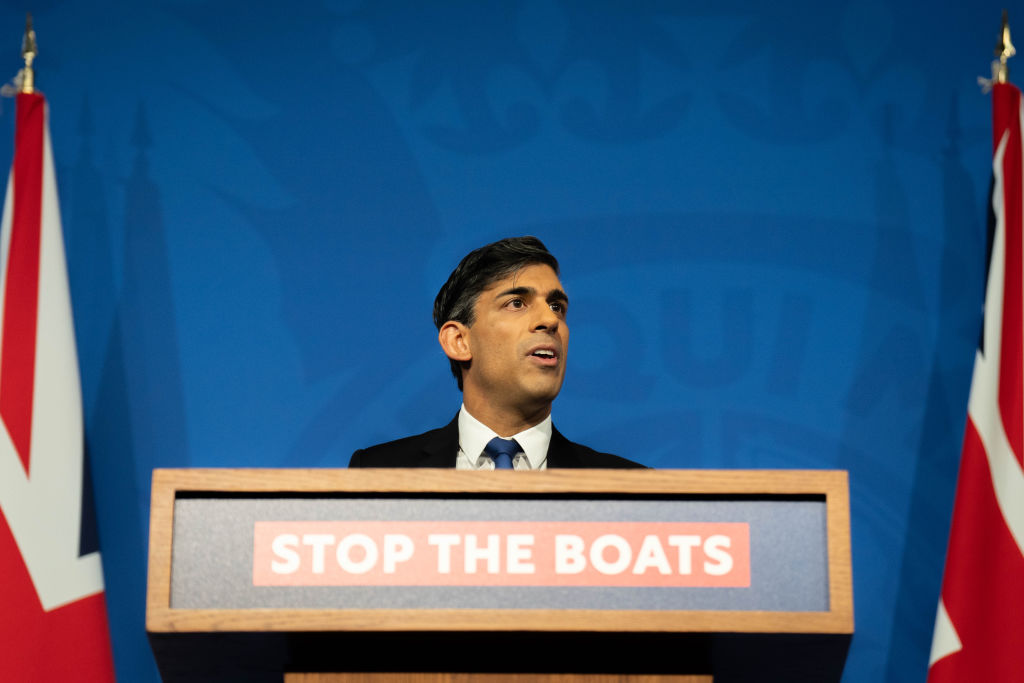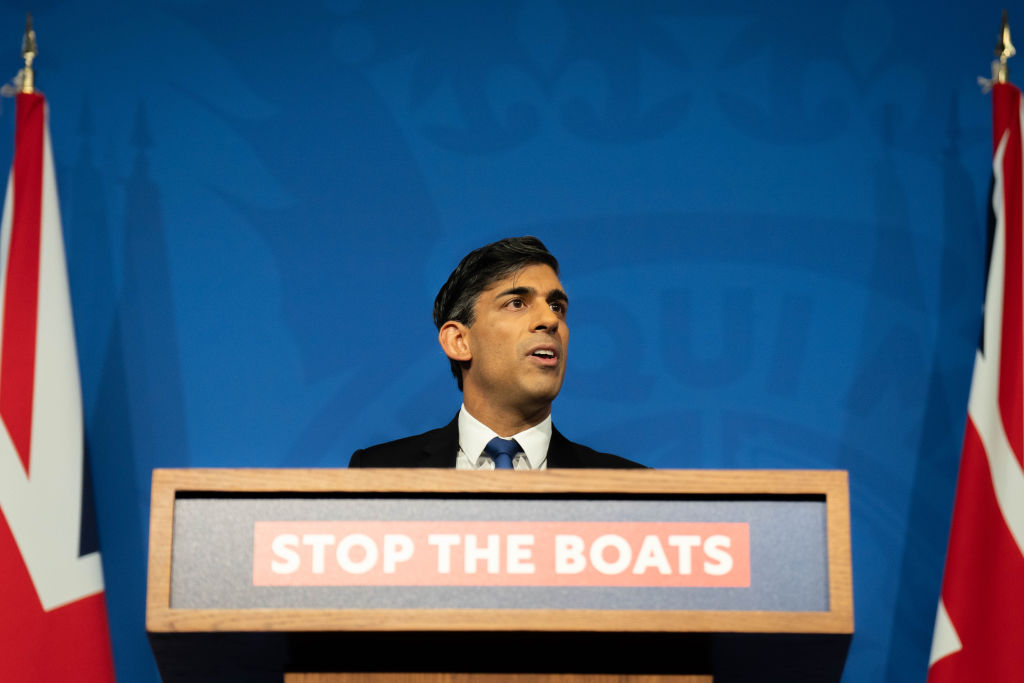
Rishi Sunak’s Rwanda Bill has survived a crunch Commons vote after a much-anticipated Tory rebellion melted away at the 11th hour.
New legislation declaring Rwanda a safe country for asylum seekers who arrive illegally in Britain to be flown was approved by MPs in the House of Commons third reading tonight.
It came after a day of mounting speculation that enough Conservative MPs could vote against the government to defeat the controversial Bill entirely – after Tory deputy chairmen Lee Anderson and Brendan Clarke-Smith resigned their party roles last night to back amendments.
Opponents on the right wing of the party wanted the law toughened up further – including disapplying human rights law and limiting individual appeals – forcing Sunak to walk a fine line between them and the so-called ‘One Nation’ moderate Tories who wanted to stay within international law.
But following a meeting of right-wing Tory would-be rebels ahead of the vote, sources confirmed to reporters that the “majority” had decided to back the government on the vote.
A total of 276 MPs voted against the Bill, versus 320 who supported it – a majority of just 44.
A defeat for the government over the Safety of Rwanda Bill would have been a historic low for Sunak’s No10 and likely have called the Prime Minister’s authority into question.
It’s understood some MPs viewed the matter as a question of confidence in Sunak and wanted to show their support for Downing Street.
Speaking in the debate ahead of the vote, Isle of Wight MP Bob Seely warned: “We kill the Bill tonight, we can all go and look for new jobs, so that is what we are facing.”
He said MPs who believed a new Bill could be written up were “truly living in la la land… it’s this Bill or no Bill, it’s this Bill or no chance – so I think we have to face the reality”.
And immigration minister Michael Tomlinson told the Commons the government would not comply with injunctions by the European Court of Human Rights (ECHR) known as rule 39.
“We simply cannot let an international court dictate our border security and stop us from establishing a deterrent,” he said. “If a plane is sitting on that runway this government will not stop until it takes off.”
Closing the debate, home secretary James Cleverly insisted the law was “in complete compliance with international law” and said: “We will do whatever it takes to stop the boats… This Bill has been meticulously drafted to end the merry-go-round of legal challenges.”
And Labour’s shadow home secretary Yvette Cooper said. “This chaos leaves the Prime Minister’s authority in tatters, he’s in office but not in power. No one agrees with him on his policy – and the real weaknesses is that he doesn’t even agree with it himself.
The Rwanda policy has become a vital plank of Sunak’s premiership, after he made ‘stop the boats’ one of the five pledges he asked the public to judge him by in January 2023.
And the legislation is hand-in-hand with a new treaty signed with President Paul Kagame’s Rwandan government in Kigali, stipulating improvements and scrutiny of the asylum system.
However, the United Nations High Commissioner for Refugees (UNHCR) this week ruled that the new treaty and legislation remained incompatible with international law on refugees.




